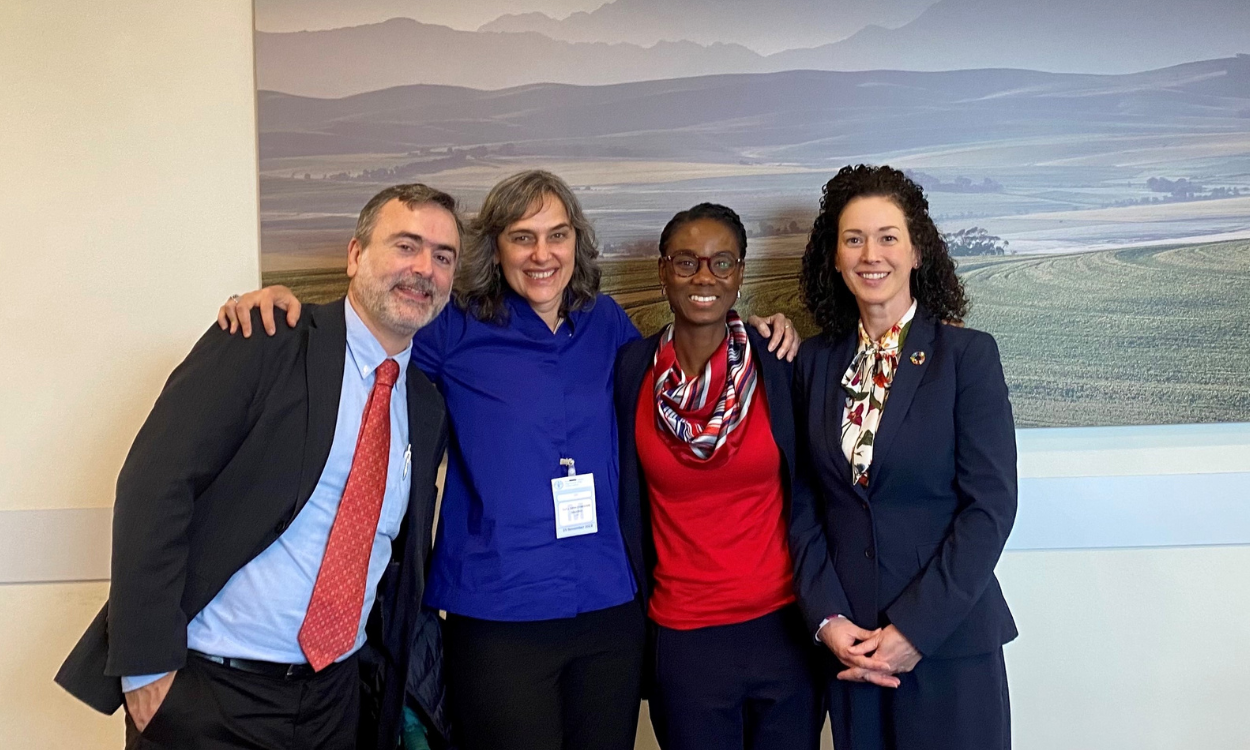SEED FUNDING JOINT PROGRAMMES
Rwanda
Resilient Food Systems: Enhanced Value Chain and Post Harvest Management





PROJECT TITLE | Resilient Food Systems: Enhanced Value Chain and Post Harvest Management |
| Context | Food systems transformation is embedded in several national policies in Rwanda, including the National Transformation Strategy, the Strategic Plan for Agriculture Transformation, the National Environment and Climate Change Policy. In 2021, Rwanda developed its National Pathway, which highlights four priority areas for the country towards 2030: ensuring food security and nutrition for all, while increasing demand for healthy diets; enhancing the environmental sustainability of food systems; improving livelihoods for farmers and all workers in food systems while building resilience to shocks; promoting inclusion of women and youth in food systems, including through enhanced financial opportunities. |
| PUNOs | FAO, WFP, IFAD |
| Contribution to SDGs | SDG 1 No Poverty; SDG 2 Zero Hunger; SDG 8 Decent Work and Economic Growth; SDG 13 Climate Action |
| Contribution to other SDG transitions | Decent Jobs and Universal Social Protection; Energy Access and Affordability |
| Duration | July 2024 – June 2025 |
| Expected financial leverage | $ 3,070,000 |
| Alignment with SG Call to Action | Policy integration; Food systems governance; Research, data, technology and innovation; Inclusive and participatory design; Private sector engagement |
| Outcomes | The JP leverages on improved post-harvest management as a strategic approach to simultaneously reduce food loss, improve incomes, and boost food availability. The JP promotes the economic integration of youth-led MSMEs and builds linkages with partners and initiatives focused on nutrition and food security to connect the dots between food production, processing and consumption. |
| Partners |
|
| Outputs |
|
The Hub partners with CARE for food systems transformations
The UN Food Systems Coordination Hub met with CARE leadership to discuss partnership opportunities to support national pathways implementation.

Left to right: Mr Juan Echanove, Associate Vice President, Food and Water Systems at CARE, Ms Sofía Sprechmann Sineiro, Secretary General at CARE International, Ms Sylvia Lopez-Ekra, Deputy Director of the UN Food Systems Coordination Hub, Ms Christine Campeau, Global Advocacy Director at CARE.
Developing strong partnerships for food systems transformations is a key part of our work at the UN Food Systems Coordination Hub.
On 25 November 2022, the Hub met with leadership from CARE to explore ways of collaboration to support implementation of national food system transformation pathways. CARE was extremely active during the UN Food Systems Summit preparations, serving as the lead for Action Track 4 – Advancing Equitable Livelihoods – which focused on “the elimination of poverty by promoting full and productive employment and decent work for all actors along the food value chain, reducing risks for the world’s poorest, enabling entrepreneurship and addressing the inequitable access to resources and distribution of value.”
Discussions focused on the strong value addition that CARE can provide as it is present in 100 countries working with civil society, grassroots organizations, farmers and communities to address health, nutrition and gender issues within the Food Systems Transformation agenda. Together, we explored opportunities to support on-the-ground work in countries to accelerate the implementation of national pathways.
CARE leads the human rights-based Decent Work and Living Income and Wages Coalition jointly with IFAD and ILO, and is a member of the Coalition of Action on Healthy Diets from Sustainable Food Systems, the Blue Aquatic Foods Coalition, Fighting Food Crises along the HDP Nexus Coalition, and Making Food Systems Work for Women and Girls.
The Hub and CARE leadership agreed to regularly touch base and both look forward to continuing to strengthen and leverage collaboration to help countries overcome inequalities in their food systems.
